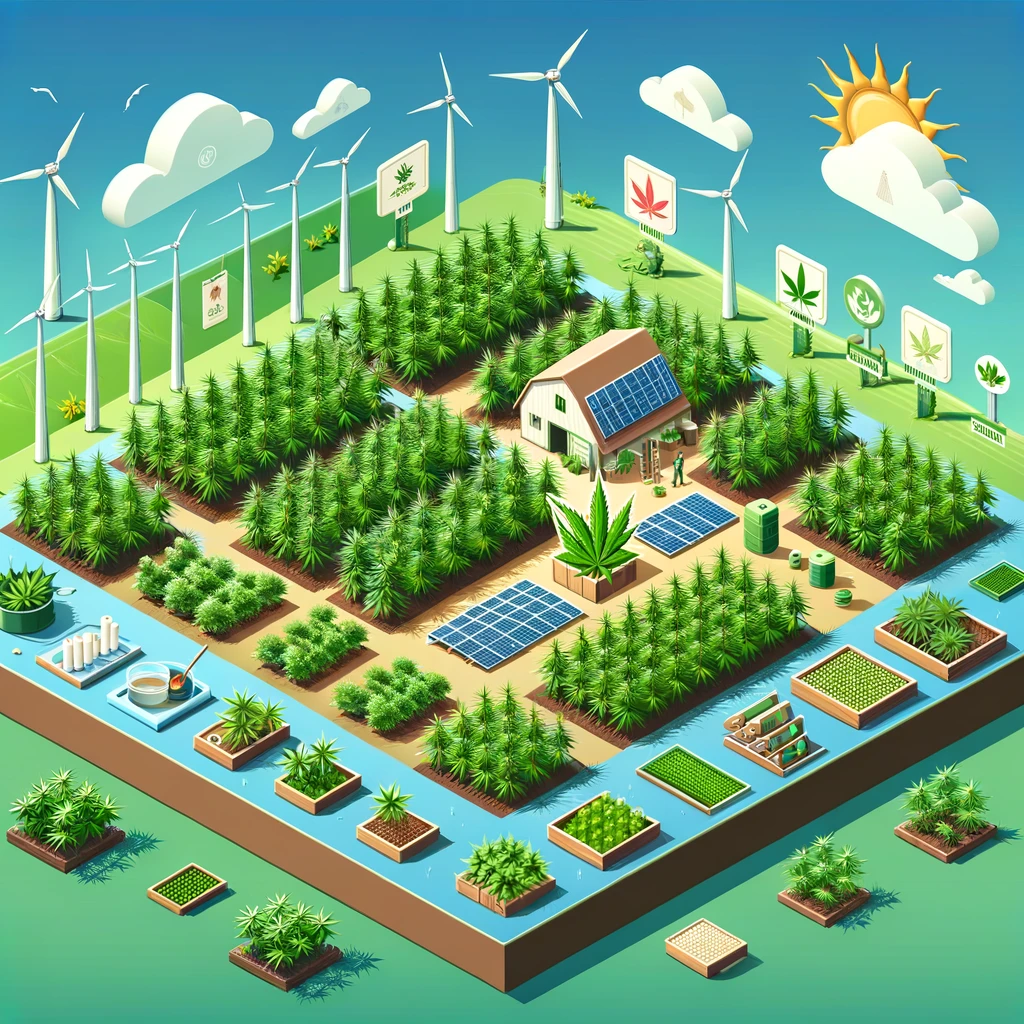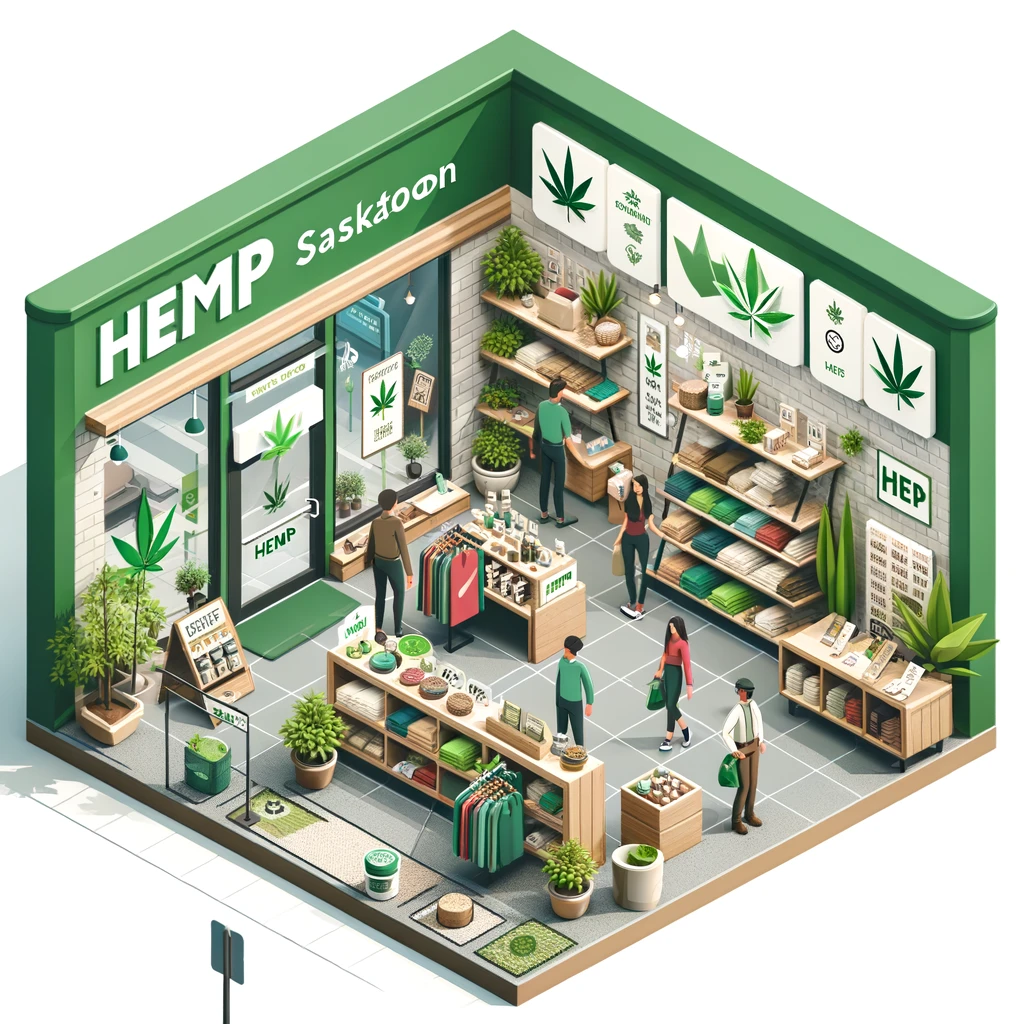
10 Best Uses for Hemp: Eco-Friendly Solutions from Packaging to Agriculture
Written: editor | February 27, 2024
1. Eco-Friendly Packaging Materials
Hemp-based packaging, made from cannabis sativa, is a sustainable alternative that significantly reduces plastic waste. The strength and durability of hemp fibers, from the cannabis sativa plant, make them excellent for creating sturdy packaging materials, offering a reliable solution for various products.
Moreover, hemp packaging aligns with eco-conscious practices as it is biodegradable and compostable, minimizing the environmental impact associated with traditional plastic packaging. By utilizing hemp, a cannabis sativa crop, in packaging production, businesses can contribute to reducing their carbon footprint and supporting a greener future.
2. Sustainable Textiles and Clothing
-
Hemp fabric, made from cannabis sativa fibers, stands out for its breathability and hypoallergenic properties, making it an excellent choice for sustainable clothing.
-
Compared to other fabrics like cotton, hemp fibers require significantly less water and pesticides during production.
-
The durability of hemp fibers is remarkable; it lasts longer than many other materials and can be recycled multiple times.
3. Natural Cosmetics and Skincare Products
Hemp oil’s omega fatty acids are a skin savior, offering deep nourishment that promotes healthy skin. This natural ingredient is a game-changer in the skincare industry due to its exceptional moisturizing properties.
Hemp-based cosmetics stand out for being free from harmful chemicals and toxins commonly found in traditional products. For those with sensitive skin or looking for cleaner beauty options, hemp-derived skincare is an excellent choice.
The anti-inflammatory properties of hemp make it ideal for soothing various skin conditions like redness, irritation, and dryness. Its calming effects can help alleviate discomfort and promote overall skin health.
4. Biodegradable Plastics
Hemp plastics are a sustainable alternative to traditional plastics as they are derived from renewable resources like hemp fibers, reducing the dependence on finite fossil fuels. These biodegradable plastics offer an eco-friendly solution as they break down naturally over time, unlike conventional plastics that persist in the environment for centuries.
Compared to their non-biodegradable counterparts, hemp-based plastics have a significantly lower carbon footprint due to the plant’s ability to absorb CO2 during its growth cycle. This makes them a more environmentally friendly choice for various applications, ranging from packaging materials to disposable items.
Moreover, the versatility of hemp fibers allows for the production of durable and robust bioplastics suitable for diverse purposes while maintaining their biodegradability. By incorporating hemp fibers into plastic production processes, industries can contribute positively towards reducing plastic pollution and promoting sustainability practices.
5. Health Supplements and CBD Products
Hemp-derived CBD products offer potential health benefits without psychoactive effects, making them a popular choice for those seeking natural remedies. These cannabis products can help manage various health issues such as pain, inflammation, and anxiety effectively.
Hemp supplements are rich in essential nutrients like protein, fiber, and vitamins that contribute to overall well-being. Incorporating hemp-based products and cannabis into your daily routine can support a balanced diet and promote good health.
CBD oil derived from hemp has gained recognition for its ability to alleviate pain and reduce anxiety levels in users. Its natural properties make it a preferred option for individuals looking for alternative solutions to traditional medications.
6. Nutritious Hemp Seeds and Oil for Cooking
Hemp seeds are a nutritional powerhouse, packed with plant-based protein, essential fatty acids like omega-3s and omega-6s, and an array of minerals such as iron, magnesium, and zinc. These nutrients play a vital role in supporting overall health.
Hemp oil stands out due to its high smoke point. This characteristic makes it ideal for sautéing, frying, or baking at high temperatures without compromising its nutritional value.
Incorporating hemp seeds into your daily diet can have positive effects on heart health by reducing inflammation and improving cholesterol levels. The fiber content in hemp seeds promotes healthy digestion by supporting regular bowel movements.
7. Durable Hempcrete for Construction
Hempcrete, an eco-friendly alternative to traditional concrete, is gaining popularity in the construction industry due to its sustainability and insulation properties. This innovative building material not only reduces energy consumption but also provides excellent thermal performance.
By utilizing hemp fibers in the construction of buildings, hempcrete helps sequester carbon dioxide from the atmosphere, making it a more environmentally friendly choice compared to conventional building materials. With its low density and high thermal mass, hempcrete contributes to better indoor air quality and comfortable living spaces.
Industrial hemp production plays a crucial role in ensuring a sustainable supply of raw materials for creating hempcrete. As more builders and architects recognize the benefits of using hemp-based products in construction projects, we can expect to see a shift towards greener and more energy-efficient buildings that leverage the power of industrial hemp cultivation.
8. Clean Biofuel Production
Hemp biomass is a valuable source for producing biofuels, serving as a renewable resource that can help reduce our reliance on traditional fossil fuels. When compared to conventional fuels, hemp biofuels exhibit lower emissions, making them an environmentally friendly alternative for fuel production. One significant advantage of hemp biofuels is their compatibility with existing combustion engines; they can be used without the need for extensive modifications.
Research suggests that hemp yields large amounts of biomass suitable for biofuel production, positioning it as a promising candidate in the quest for sustainable energy solutions. The process of converting hemp into biofuels has shown potential in commercial production settings and could play a crucial role in reducing carbon footprints across various industries.
9. Non-Toxic Paints and Stains
Hemp-based paints and stains stand out for their eco-friendly nature, being devoid of harmful volatile organic compounds (VOCs). These compounds are known to release toxins into the air, contributing to indoor air pollution. By opting for hemp paints, you not only safeguard your health but also contribute to a cleaner environment.
The adhesion properties of hemp paints are exceptional. This feature ensures that the finishes last longer compared to traditional options, providing durability and reducing the need for frequent repaints. The longevity of these finishes is not only cost-effective but also reduces waste from discarded paint containers.
Moreover, using hemp-based products promotes sustainability in various industries by supporting the cultivation of a crop that requires minimal pesticides and fertilizers. As an environmentally conscious choice, hemp paints align with green building practices aimed at reducing carbon footprints.
10. Soil Remediation and Agriculture
Hemp’s phytoremediation abilities make it effective in purifying soil by extracting contaminants. This plant not only cleanses the earth but also enhances its quality by preventing erosion and supporting diverse ecosystems. In comparison to traditional crops, hemp cultivation demands significantly fewer pesticides and fertilizers, making it a sustainable agricultural choice.
By harnessing hemp’s unique properties, farmers can rejuvenate damaged lands while promoting environmental sustainability. Through strategic planting of hemp, areas once plagued by pollution or soil degradation can be revitalized naturally. The cultivation of hemp stands out as an eco-friendly solution that benefits both agriculture and the environment simultaneously.
The industrial use of hemp for soil remediation aligns with global efforts towards greener practices in farming and land management. As more attention is drawn to sustainable agriculture worldwide, the role of hemp in enhancing soil health becomes increasingly prominent. Embracing this versatile crop presents a promising avenue for cultivating healthier soils without compromising productivity or ecological balance.
Frequently Asked Questions
What are the benefits of using hemp for eco-friendly packaging materials?
Hemp is a sustainable alternative to traditional packaging materials like plastic. It’s biodegradable, requires fewer resources to produce, and helps reduce waste in landfills. By choosing hemp packaging, you contribute to a greener future.
How can hemp be used in skincare products?
Hemp contains essential fatty acids that nourish and moisturize the skin without clogging pores. Its anti-inflammatory properties make it ideal for sensitive skin conditions like eczema or acne. Using hemp-based skincare products promotes healthy and radiant skin naturally.
Is hemp oil suitable for cooking?
Yes, hemp oil is not only nutritious but also has a high smoke point, making it perfect for cooking at higher temperatures without losing its beneficial properties. Incorporating hemp seeds or oil into your recipes adds a nutty flavor and boosts the nutritional value of your dishes.
Can hempcrete be as durable as traditional construction materials?
Hempcrete combines industrial hemp fibers with lime-based binders to create a lightweight yet sturdy building material. While not as strong as concrete, it offers excellent insulation properties and regulates humidity levels indoors, contributing to healthier living spaces over time.
How does using non-toxic paints made from hemp benefit indoor air quality?
Traditional paints release harmful volatile organic compounds (VOCs) into the air even after drying, impacting indoor air quality negatively. Hemp-based paints use natural ingredients that emit minimal VOCs, creating safer environments free from toxic fumes while adding vibrant colors to your walls.



